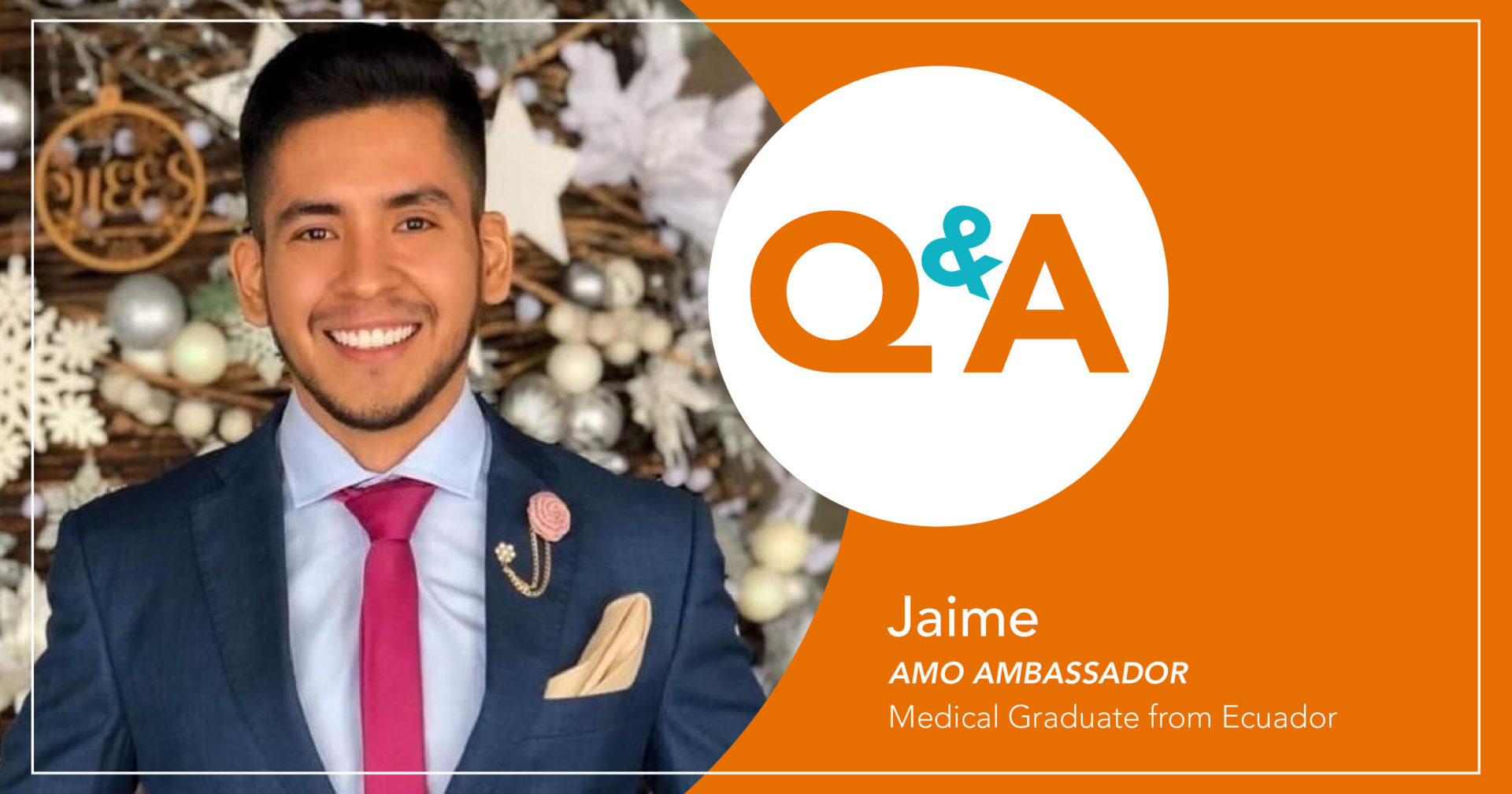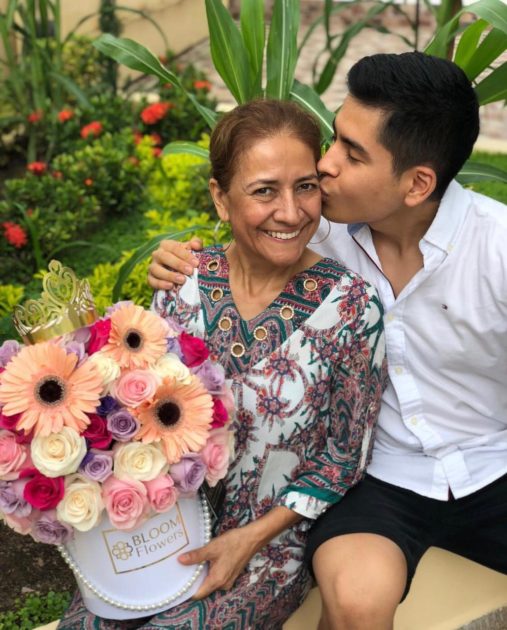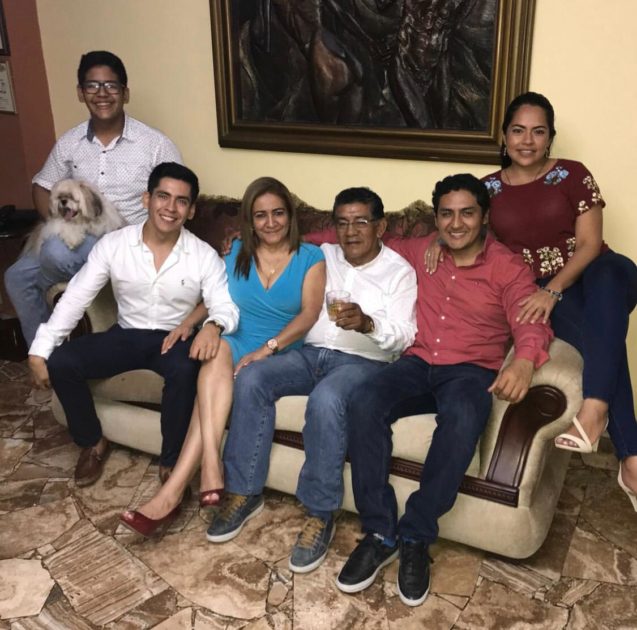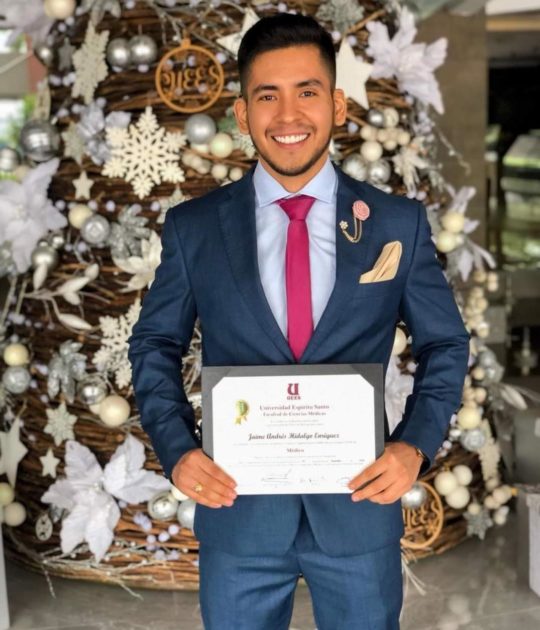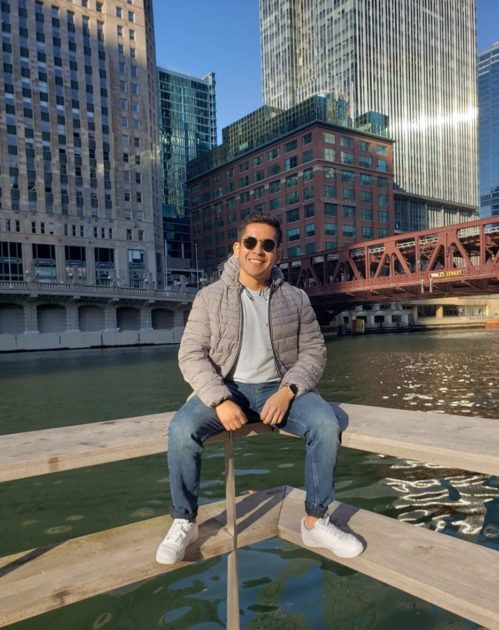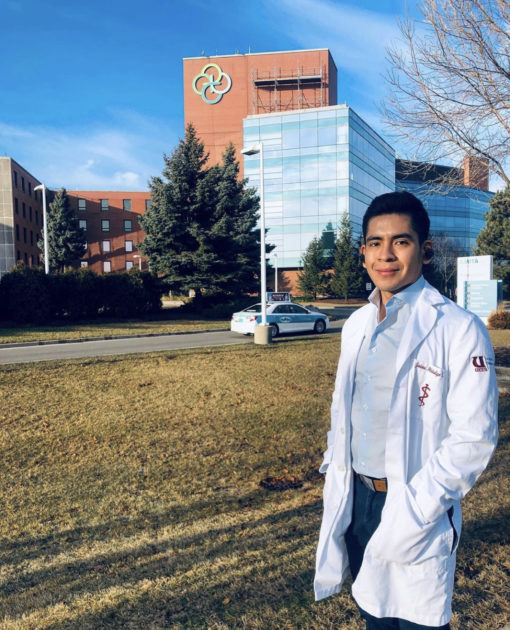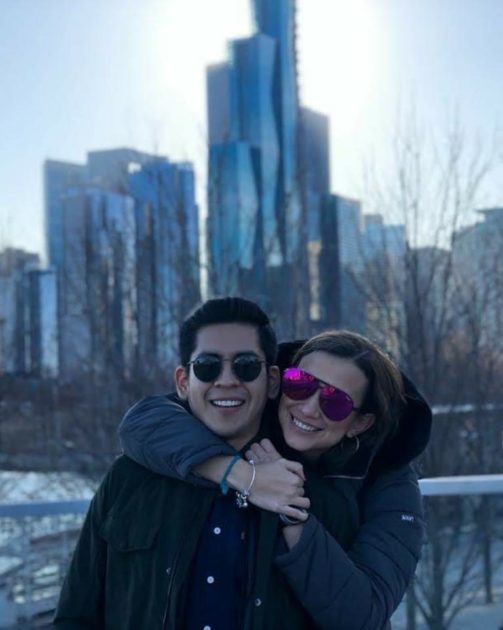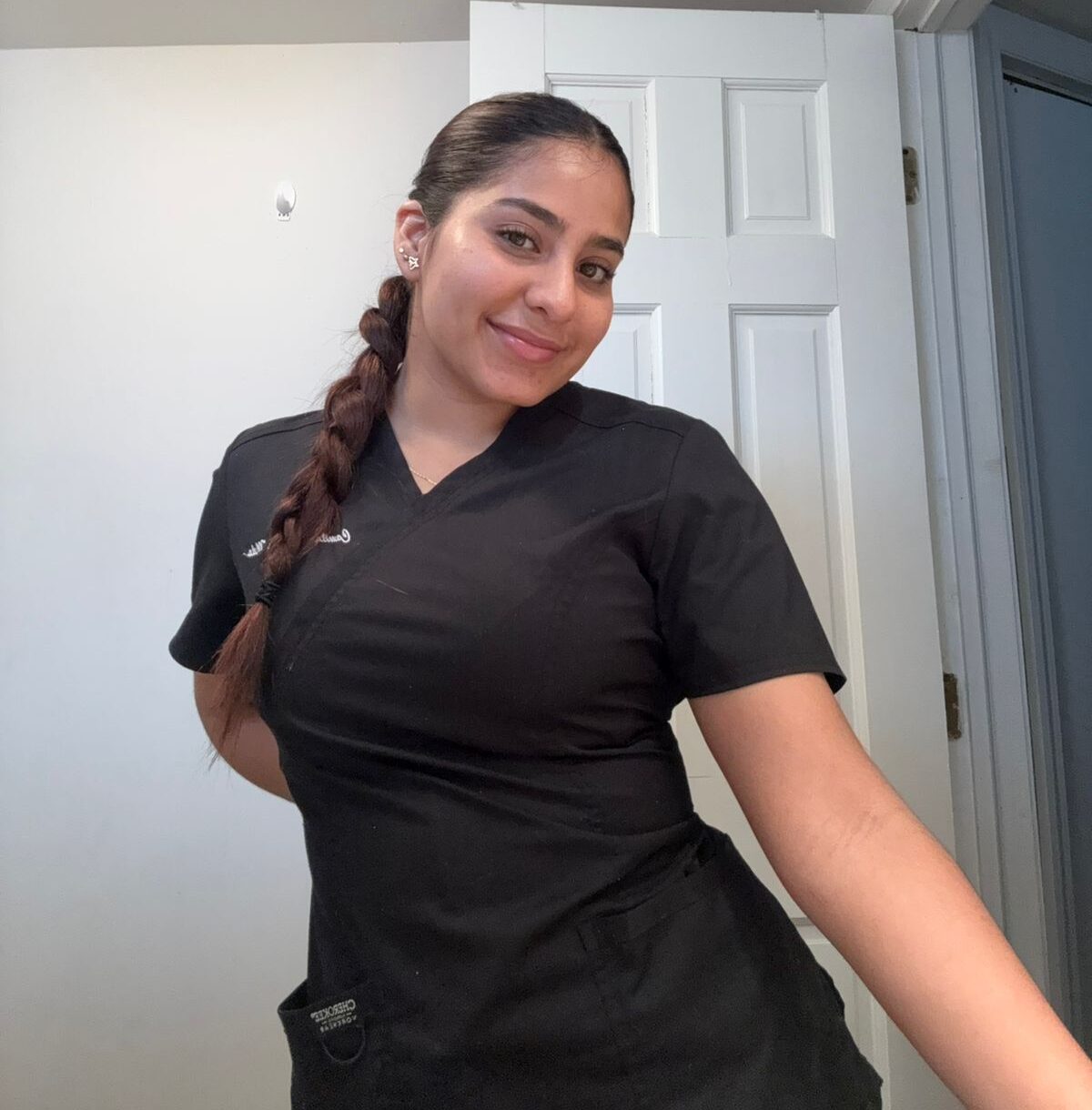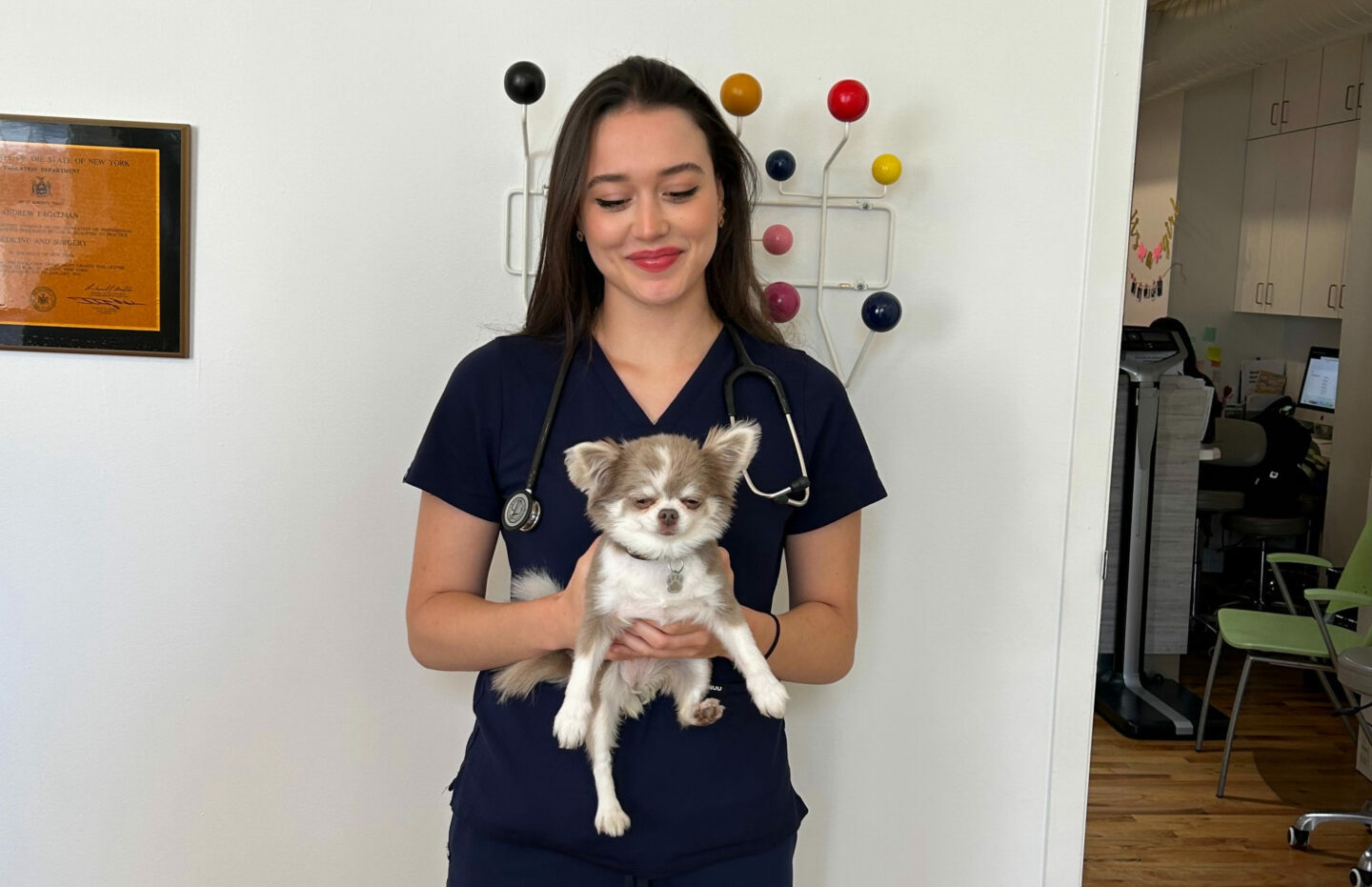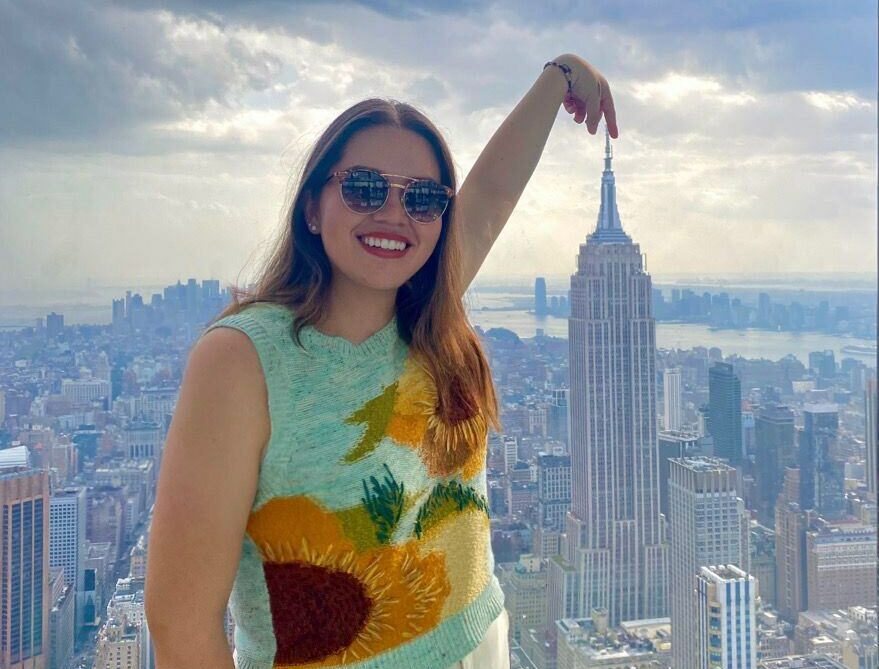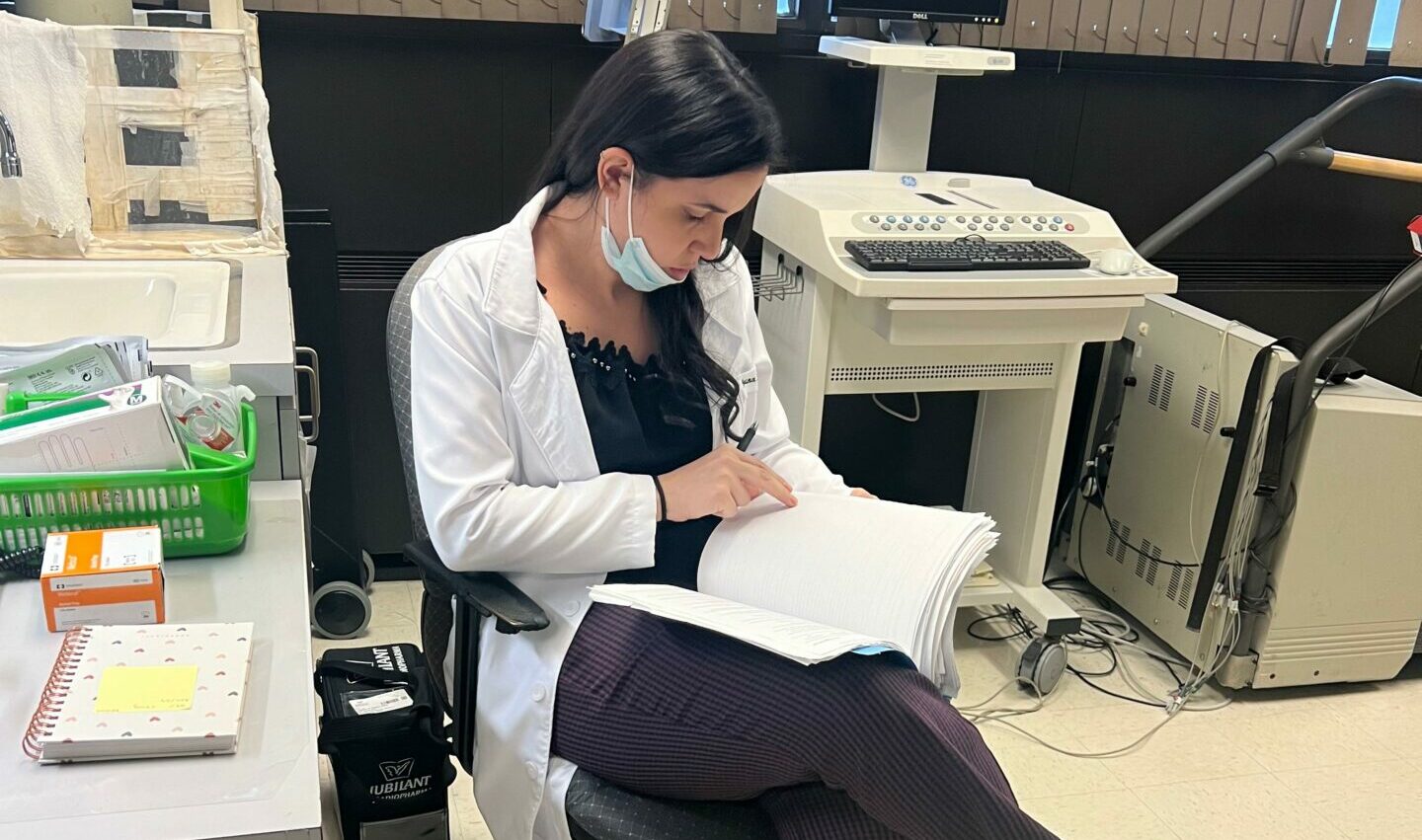Meet Jaime, an AMO Ambassador and recent medical school graduate from Universidad de Especialidades Espíritu Santo (UEES) in Ecuador. In this Q&A he shares about the affects of Covid-19 on his medical journey and on Ecuador. He also shares what life is like after graduating med school and what’s next for him.
If you’d like to learn even more about Jaime and his medical education journey, head to this blog or follow him on Instagram.
You recently graduated! How did it feel to finally earn a degree you’ve been working towards for so long?
You are very welcome. It’s my pleasure to participate in your blog. And yes, I was very happy on my graduation day. Finally obtaining the medical degree has filled me with great satisfaction, since behind everything my parents have been supporting me from the first day that I decided to take this path, as well as the support from my brothers, my lifelong friends and those friends I met in this wonderful career.
I appreciate each of the people who have supported me during my studies in some way. Despite the difficulties, I managed to achieve a first goal on a path that at one point seemed a long way to go.
In the fifth year of my career, my mother was diagnosed with cancer and 6 months later she passed away. It was a difficult situation to face, but I had to stand strong and listen to her words. “I’m not the first nor the last person diagnosed of cancer, we all have to continue with our life plans and goals”. She didn’t want me to quit my career. It was a dream for her to see that I managed to become a doctor. Both of my parents worked so hard all their life to allow me and my brothers to have a great education. So, having obtained my medical degree represents many things and among them, having fulfilled my mother’s dream and mine.
When did you first know that you wanted to become a doctor?
When I was a small child, I observed the difficulties or deficiencies in the health system available in the town where I lived. Too many people lack the knowledge of how to appropriately manage their diseases. Nowadays, I understand that it’s something bigger and really hard to change, but as a child, that was a first call to consider the idea of becoming a doctor. I mentioned it to my mother and from that moment we both cultivated that idea.
When I was in school, I was a good student in exact science subjects, but they were a torture for me, it really wasn’t something I enjoyed. I was scared when I started my first year at medicine school because of all the things people say about it. Nevertheless, along the way I realized that this career was for me and I proved it in my internship year, which was very exhausting in a way, but it did not feel like a hard work for me, it was something that I enjoyed, especially during my surgery rotation. You know what they say, choose a job you love, and you will never have to work a day in your life.
Despite graduating, we hear you’re quite busy. What have you been up to?
After my graduation I had a month off and then I started working in the public health system of my country. All doctors who want to work in Ecuador must work for one year of social service in health care centers located in rural areas.
My next goal is to do my specialty abroad, after that I will probably return to my country, so I decided to do the year of social service right now, since COVID-19 was something that made it difficult for me to travel abroad and study to apply for a residency program. This has been a very tough year. Everyone here knows that it’s a very difficult year because you can get a job in a place close to your home or one very far away and difficult to access. Also, the public health system has many shortcomings in my country, and we must address these issues to help patients who live in rural areas. On the other hand, the COVID-19 pandemic has made things worse. I know this is happening around the world, we usually have to work double or even triple what we should.
During this first semester of the year, I have learned that there are things in our society that are very difficult to change and that it will depend on the government in turn, since other areas with deficits, such as education, have a broad impact on the health of the population.
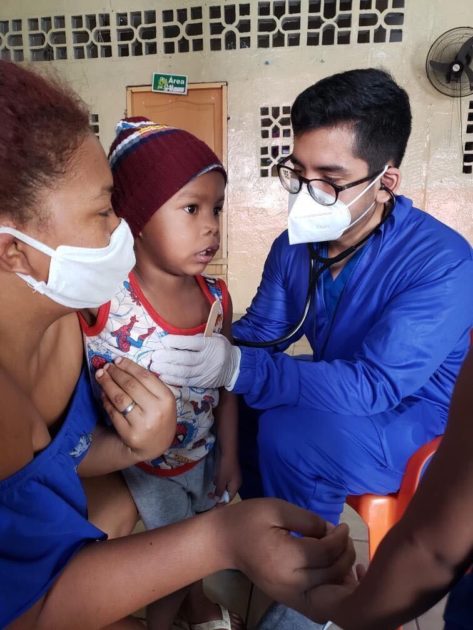
Caring for COVID-19 patients probably comes with a lot of responsibility. How does caring for these individuals differ from other medical cases?
Managing a patient with COVID-19 has been complicated. Although we have more knowledge about the disease than at the beginning of the pandemic, there are factors that have a negative influence on it, which we cannot control. The evolution of a patient is uncertain. We cannot guarantee that everyone will recover completely or without sequelae. From one moment to another, things can change abruptly and therefore strict clinical surveillance with complementary lab tests are necessary.
I’ve learned that it is important to detect moderate and severe cases in a timely manner because their management requires a higher level of care than a general practitioner like me could provide in a rural health center where we usually do not even have oxygen for everyone.
What is the outlook of COVID-19 in your home country of Ecuador?
In my country, like around the world, we still have controversy with the management of COVID-19 patients, the scientific evidence that has been published to date indicates the best possible guidelines for a good patient management and despite this, many doctors still continue to make unnecessary prescriptions that may even get to generate harm in patients. On the other hand, to face this virus, the best tools will always be prevention and prompt vaccination of the population, but while one of them is carried out gradually, the population has lowered the fear of contracting COVID-19 and that has generated us to continue having many cases in our country.
Since May 2021, with the arrival of a new government in my country, the vaccination plan has changed and improved, but another great enemy is the population’s fear and mistrust of the vaccine itself due to the misinformation they find on social media and other sources. In recent days, great absenteeism of the population to the vaccination centers has been noted. I know this since I’ve been working at vaccination centers on weekends. Once most of the population is vaccinated, it is expected that there will be an economic reactivation in the country. Voluntary return to classrooms for students is beginning. Unfortunately, education and learning deficiencies caused by the pandemic have already been detected, especially amongst the youngest children who did not have access to internet connection.
Where do you plan to go with your education or career once COVID-19 is better managed and the world is a little safer?
I loved the experience I had during my pediatric rotation in Chicago and I probably will be doing a surgery rotation soon. Studying to apply for the residency program in the U.S. is one of my options, as well as apply to the residency program offered in the U.K.
What specialty do you plan to go into and why?
I have considered gastroenterology, pediatrics and even gynecology as possible specialties for me. As I mentioned before, during my internship, I discovered that I loved working in the operating room. So, my next goal in my career is to study a surgical specialty and I will do my best to achieve this.
At AMO, we know diversity among healthcare professionals results in clearer patient communication and more favorable outcomes. Did you find you were able to connect with patients of diverse backgrounds while rotating with AMO?
Having done my pediatric rotation in Chicago has been a great add to my professional life. Being out of my comfort zone allowed me to develop other skills beyond the medical ones. I remember that the diversity of patients that I saw on a daily basis allowed me to improve my skills to interact with them. Dr. A taught us how important it was to establish a good doctor-patient relationship to obtain better results in their management and outcomes. She had excellent communication with her patients, and I learned every one of the tricks she taught us. At first it was difficult for me, but the last weeks of my rotation I already was able to connect with patients. It is something that I keep in practice and I must continue to improve day by day. I’m a believer that you can always do it better.
Are you considering practicing medicine in the U.S. or do you plan to stay in Ecuador? What has influenced your decision?
If I enter a program to study my specialty, be it in the U.S. or the U.K., in any case at some point it is possible that I will return to my country to work. However, if I have realized something during my life, it is that things do not usually go as planned and that we must rather adapt to the opportunities that appear along the way. So, I am not making a final decision now, but I have the possibilities in mind.
Do you have any advice for global medical students and graduates who, like yourself, might be having a different experience than they planned due to COVID-19?
Many things have changed this year. Some of us have a different perspective on our lives and what we want to do from now on. But in our professional lives, when we make an effort every day, if one door closes, others open, and we must take advantage of every opportunity that appears along the way.
Nothing comes for free; we must always work very hard to meet our goals. I have seen closely the experience of my brother, who entered medical school just as universities closed and online education began. I can say that he has been frustrated many times by having to take his first year of medicine in his room, but he is very motivated now with the idea of going back to face-to-face classes and continuing to learn.
In the case of those whose plans changed a bit, I could say that it is important to do things calmly, each of us has different priorities in mind and therefore beyond meeting a goal as soon as possible, it is important to enjoy the process that this involves. We have to remember that not everything in life is our medical career, there are things that we will be sacrificing along of our journey to become doctors, but we must not forget that our happiness is also a priority. Life is fleeting and from one moment to the next, because we are very focused on our professional lives, we forget about our personal lives, and we should not do that. Everything will come in due time. We will do it. We already got that MD, and in the same way we will achieve our next goal.
And here is our last question for you. We have loved having you as an AMO Ambassador! What is the best part about being an ambassador?
My favorite part about being an ambassador is helping to clear the doubts that other medical students, usually from Latin America, have about doing a rotation in the USA. I think this gives them more openness to make the decision to do a rotation with AMO, because they talk to someone who has already participated in the program and that generates more confidence to them. It is gratifying to answer the questions they have and to remember that at some point I was with the same fear of traveling and not knowing what to expect. And that involves things beyond the clinical rotation, like what will I do with transportation? what are the main difficulties? will I have free time? how much will I spend approximately each week? I’m always glad to be able to help other students.
AMOpportunities provides U.S. clinical experiences for IMGs.
Signup to search our rotations and apply to begin your AMO journey today!


